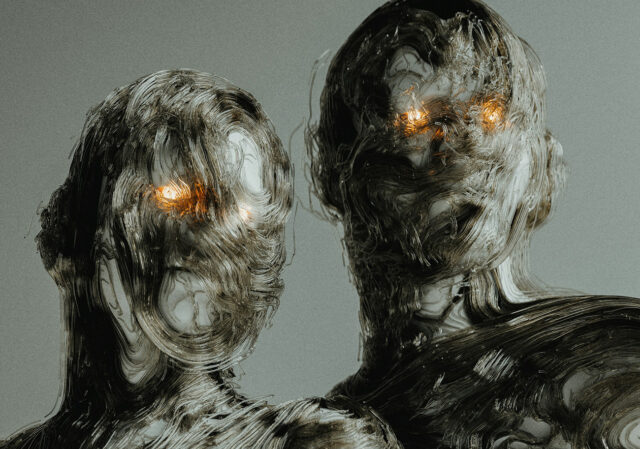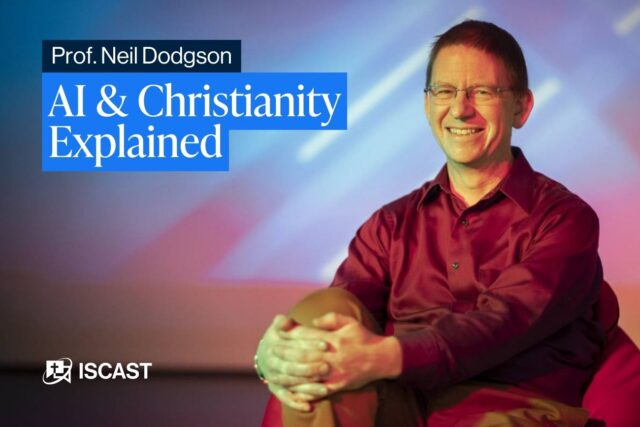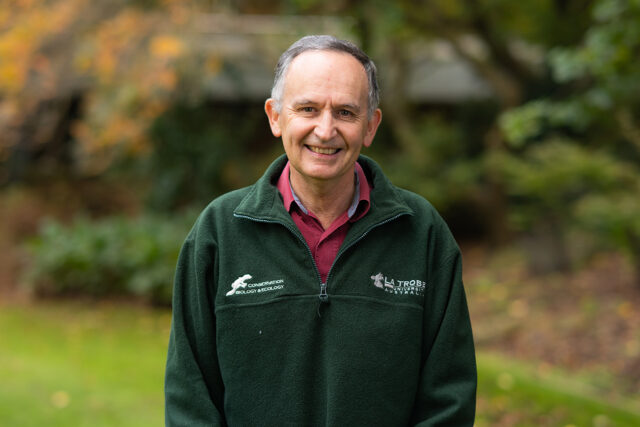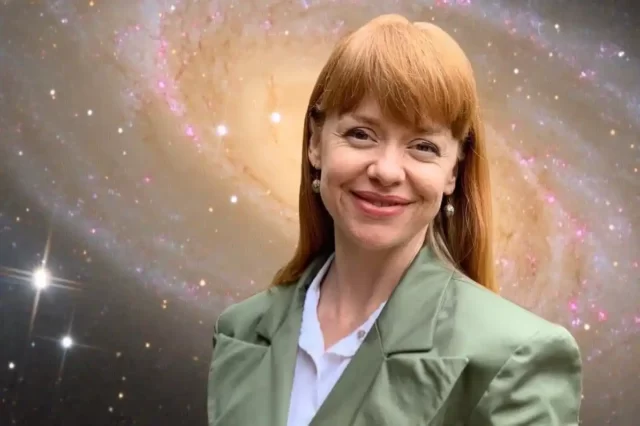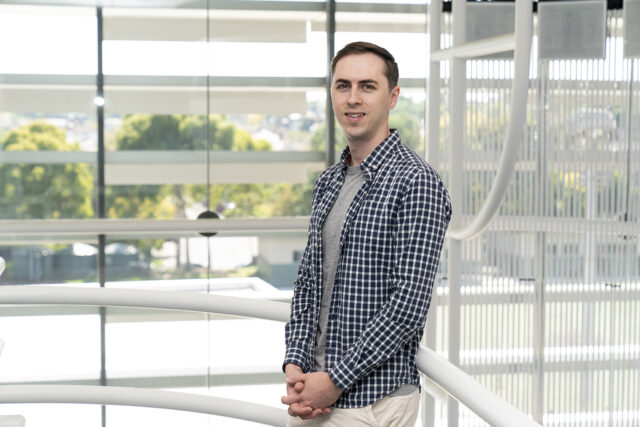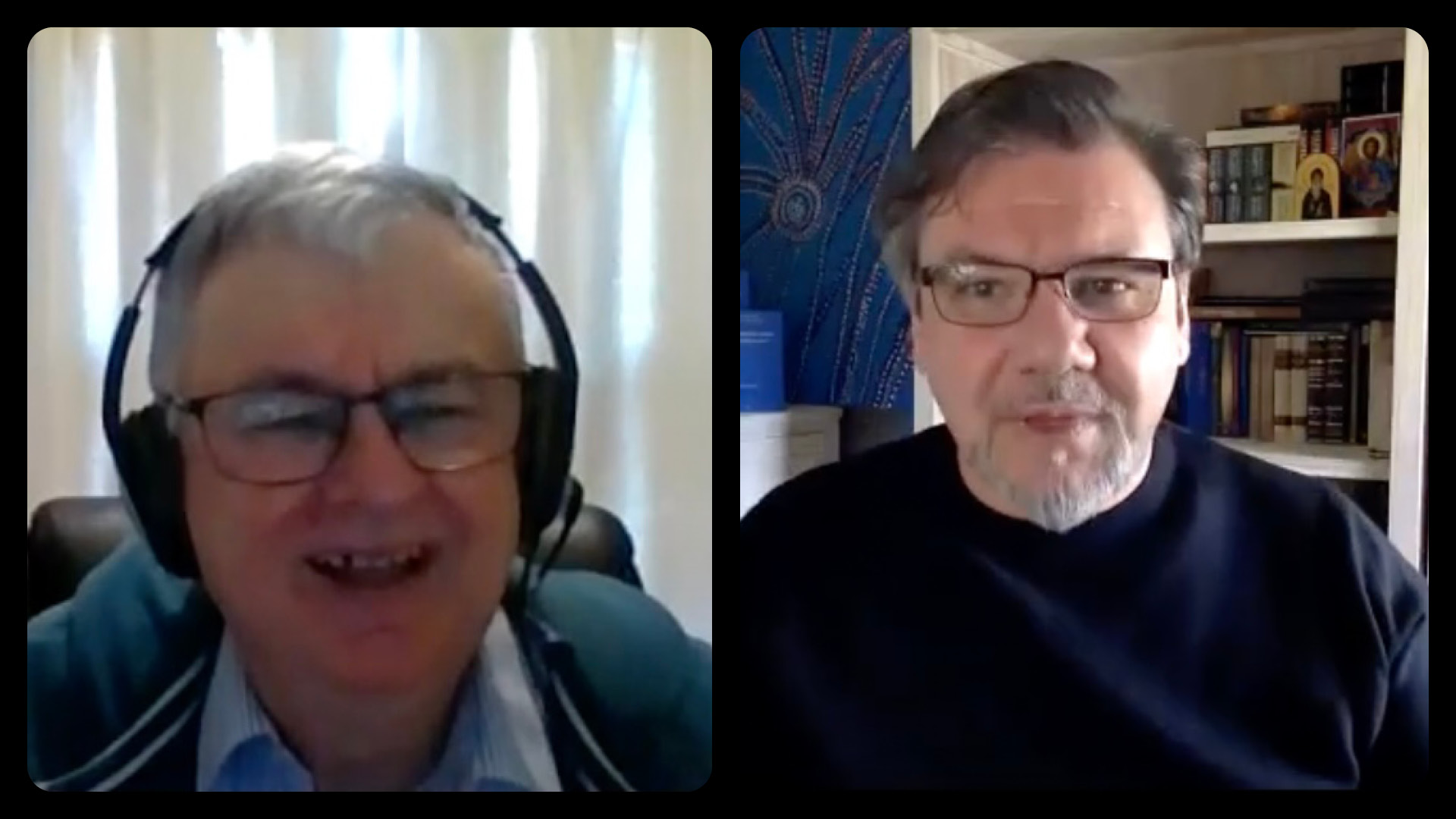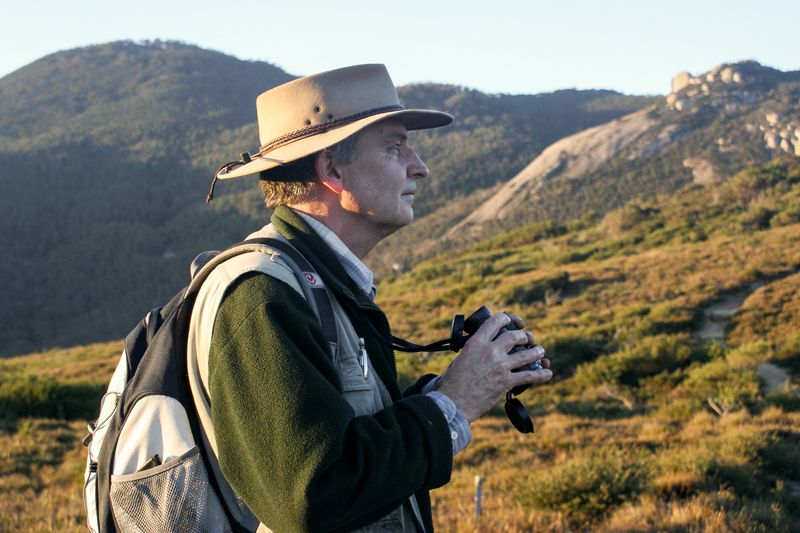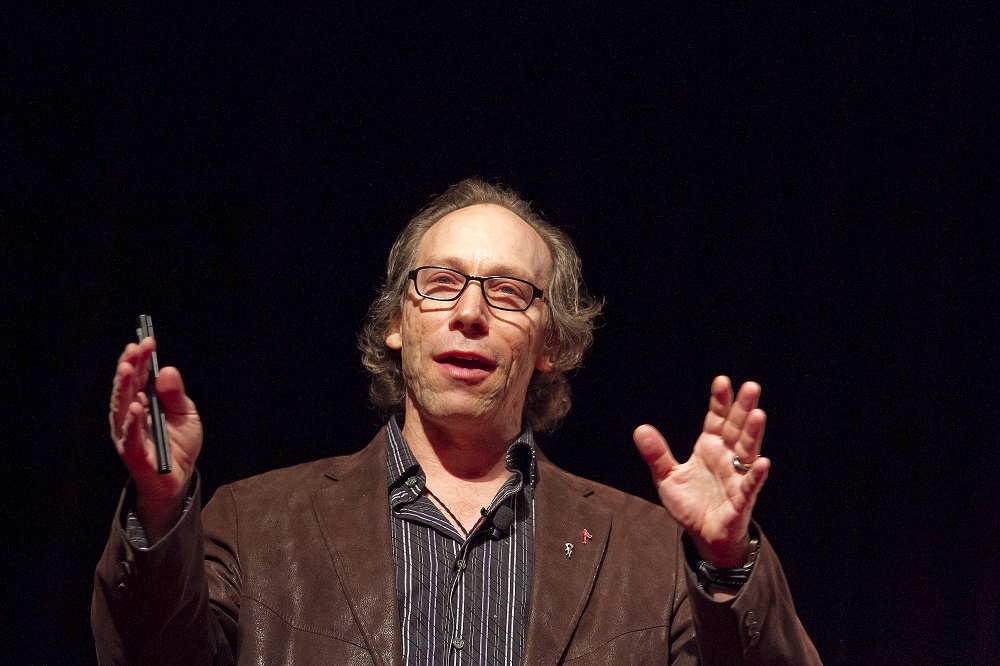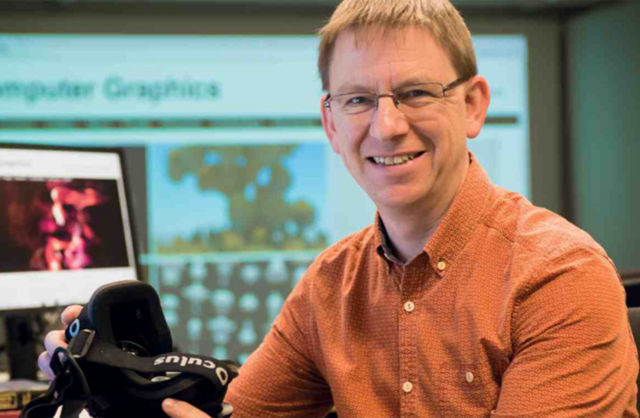


ISCAST Executive Director Chris Mulherin interviews Professor Peter Harrison on the history of the complex and interdependent relationship between science and religion in the West.
Peter is an ISCAST fellow and an eminent Australian historian and philosopher. He’s a leading international scholar on the history of science, and says we’ve been duped into believing in the myth of a perennial conflict between science and Christianity. No, Harrison doesn’t use the word ‘duped’, because he is quiet-spoken, choosing his words with care, and wary of overstating his case.
Peter Harrison will be speaking in March at ISCAST’s “The heavens declare …” conference on science, faith and apologetics. More details here.
Interview headings:
- The Conflict Myth
- The Galileo Affair
- The Catholic Church’s Support of Science
- Evolution and Darwin’s Bulldog
- The Construction of the Conflict Myth
- Science and Faith Interdependence?
- Science: Uniquely Western?
- Religious Heroes of Science Has Science Made Religion Redundant?
- Wither the New Atheism?
- Turkey’s Failed Attempt at Secularisation Through Science
The full transcript of the interview is below, and can also be downloaded as a PDF.
The audio interview is also available here (mp3, 37Mb)
An article published in The Melbourne Anglican (October 2017) based on this interview can be found here.
Interview with Professor Peter Harrison – August 16, 2017
CHRIS MULHERIN: Well, Peter, it’s great to have you here; thank you for coming to Melbourne and speaking at a number of places. I wonder if you would tell us a bit about yourself? You’re a researcher at the University of Queensland; how did you come to be there, what are you researching, and where did you come from?
PETER HARRISON: Well thanks Chris, thanks for the invitation to come to Melbourne. Look, my present position is Director of the Institute for Advanced Studies in Humanities at the University of Queensland. So, we’re an outfit that’s devoted to research in the humanities, much of which goes on in my area, which, broadly speaking, is the history of ideas or intellectual history, and this includes, say, the history of science, and the history of religion, the history of philosophy, and the way that those three things are related to each other in the past and indeed in the present.
So, to say a little bit about my background, well, if we go right back I first studied science at university and then I taught science at secondary school for a while and then got interested in the broader questions about science and went back to university to study history, philosophy, and religion. That kind of is where I am now. So, I’ve written and researched really about … well as I said, the history of science and religion in the past, and I’m very interested in the relations between science and religion—past and present.
CM: Now, between you being a science teacher in Queensland and being the head of a research institute in Queensland at the University of Queensland, you’ve been elsewhere haven’t you? Some big names in the academic world, tell us where you’ve been and what you did.
PH: Well, some of my postgrad study I undertook at Yale University which is a lovely university on the east coast of the U.S., one of the so called ‘Ivy League’. And I taught philosophy for quite a long time at Bond University on the Gold Coast here in Australia and then I took up a position in the early 2000s at the University of Oxford where I was chair or Professor of the Idreos Professor of Science and Religion, and also, while I was there, head of a research and engagement institute called the Ian Ramsey Centre which is devoted to research and engagement in the science and religion area.
CM: And then you returned to Queensland when?
PH: That’s right, so I came back to Queensland, it must have been in 2012 or 2013 and that was to assume headship of what was initially a research centre at UQ and subsequently became this large institute.
CM: You’re now in Melbourne doing some very interesting talks for us [ISCAST]; you spoke at Melbourne University yesterday, and at Ridley College you did the annual Allan Day Memorial Lecture for ISCAST. Today you’re speaking at the University of Divinity to staff and post-grads and other interested people. Let’s talk about some of the content of those talks.
Why don’t we start with the story of the conflict between science and faith, because, when you talk about science and faith these days, there is a perception on the part of so many people that there is some sort of fundamental conflict. I wonder if you could give us a bit of the background, what do you think about that?
The Conflict Myth
PH: Well, first of all, I think you’re right to say that when people think about the historical, and indeed the present relations between science and religion the first thing they think of is conflict. And in the present situation, what they think of is anti-evolution—religiously inspired anti-evolution movements primarily: so, the creation-science movements that we tend to associate with the US but which actually have quite a global profile. And indeed we find these in Islamic societies as well.
And when people think about the past, they think about say the Galileo affair probably most notoriously, but they also think about religious responses to Darwin, and indeed there are a number of other instances that are routinely proffered out as exemplifying this overarching pattern of science and religion and conflict.
Now, what’s interesting about this is that historians of science think this is a completely mistaken view of the past; and these are historians of science who have no particular interest in being apologists for religion. But if you look at what historians of the science-religion relationship have said, probably over the past fifty years, first of all it’s a puzzlement about the persistence of this myth, and then an attempt to explain first of all what the genuine relationships between science and religion historically have been, but then also some analysis of why this myth persists in the popular mind.
Now, what have they actually said about the historical relations between science and religion?
For the most part they’ve said that they’re complicated or complex and this is referred to sometimes as ‘the complexity thesis.’ But sometimes religion has supported science and sometimes it has been opposed to science and sometimes it’s been indifferent to science, but the picture is a mixed one. My own view is that if you look at the overall shape of relations, the relations have been much more positive on balance than negative. So, still, I wouldn’t want to deny the complexity of the relations.
Now, we can also look if you want at the two specific examples …
The Galileo Affair
Well the Galileo affair is very interesting because I think it’s the first thing that comes to mind. And in my experience, speaking about the historical relations between science and religion, the first thing people say is ‘what about Galileo?’ Well, Galileo does fit the model of a complex situation. Now, what I tend to say about the Galileo affair is two things and the first thing is that it’s not a straight-forward conflict between science and religion for a start. And the second thing I’d say is that in no way is Galileo’s treatment—which was not ideal I think we’d have to admit—in no way was this typical of the Catholic attitude to science.
So, if we look at the first question, if we ask ourselves who in the scientific community in the early 17th century when these issues were being nutted out, who in the scientific community supported the view of the universe that Galileo took, and we could number the scientific experts that supported Galileo on less than two hands. So, the scientific consensus at the time was firmly against the view that Galileo was proposing.
The Catholic Church’s Support of Science
CM: So, the church was supporting the current science?
PH: The church did a lot of work to try to get the science right and to that extent they were essentially supporting what they believed to be the correct scientific consensus. And what that suggests is that there are a number of difficulties with the scientific claims that Galileo was making. One of them: there was a lack of stellar parallax. And what this meant was that if the earth was in motion, the relative positions of fixed stars should appear to change and they don’t. So, this seemed to be firm evidence that the earth was stationary. Now, the reason … There’s a complicated science behind why stellar parallax was not observable; it was only observed in the 19th century as it turns out but part of the story was to do with the aberration of the telescopic observations of the stars that made them appear closer than they actually were and they’re much further away … so, there’s a complicated science there. But that was one strong scientific reason why the Catholic Church and indeed the scientific community more broadly thought that the hypothesis of a moving earth was deeply problematic.
And the other thing that we can say is there was another perfectly reasonable theory, the Tychonic theory, that explained some of the observations that generated the difficulties with an earth-centred universe: the phases of Venus would be an example here. This theory accounted for those without having to put the earth in motion, so it seemed to solve a number of the problems that Galileo’s telescopic observations raised but without complicating the problem of parallax and indeed without complicating the physics at the time; the physics at the time made it also very difficult to get the Galilean position up and running.
So, the science was complicated so that’s why I’d say … Certainly there were religious elements there, so if you look at the condemnations of Galileo, there were a number of areas where it was thought to be problematic scientifically and the church was on strong grounds there and there were a number of issues that were religious, to do with the interpretation of Scripture, so there was that component but it wasn’t as simple as it’s often made out to be.
Look, on the second point, on the Catholic support of science, I’d say we only need to look at the fact that no other institution from the late Middle Ages and probably into the 18th century, no other institution in Europe had supported astronomical research to the extent that the Catholic Church did. They were big supporters of astronomy and obviously the medieval universities which the Catholic Church got up and running; this was the site where science was conducted. They were huge supporters of knowledge and learning.
CM: Now, about the Galileo affair, I understand that other complications to the factor would have been sort of political ones and also perhaps the personality of the man himself?
PH: Yeah, now look, broadly speaking the context of the Protestant Reformation was important because the Catholic Church’s authority was threatened and what Galileo does is come along in the famous “Letter to the Duchess Christina”[1] and starts to do biblical exegesis for himself, saying ‘if we do biblical interpretation this way, we can see it supports my science.’ Now, this was a disastrous move politically because for individuals to claim the right to interpret Scripture was a Protestant position; it had been explicitly condemned at the Council of Trent and the Catholic Church is very nervous about people essentially going down this Protestant path. So, that’s part of the background.
The internal politics are also very interesting. So, Pope Urban VIII is in charge when Galileo is tried by the Inquisition. He was a friend of Galileo’s originally; they were good friends; he was one of Galileo’s key supporters. Galileo alienated him by making him look an idiot in the book in question which was the Dialogues. But Galileo had key supporters in the church and we know that because the theological sophistication of this letter which is about biblical exegesis where Galileo evokes Augustine to good effect … it’s clear that someone is feeding him this theological information. So, he definitely had supporters and indeed we know that. For example, he was placed under house arrest; that’s certainly the case, but he spent much of his house arrest in a villa outside Florence and when he was in Rome he was put up by the various church authorities. And he remained a committed Catholic to the end of his life; in fact Galileo was a member of the clergy. He was a member of the secular clergy with the shaved head and the works.
CM: So, the Galileo affair is not perhaps as it’s sometimes portrayed. Why don’t we go forward a little bit? What you’ve called the ‘myth’ of conflict gets promoted a lot in the 19th century doesn’t it? Tell us about the Draper-White hypothesis.
Evolution and Darwin’s Bulldog
PH: That’s right, well if we look at England, what we see from the 17th century to the late 19th century is a very strong consensus that brings theology and science together. So, natural theology and science are almost inextricable. The Church of England is very much behind science, key scientific figures are religious figures and theology is the medium for the popularisation of science. So, that’s why people are interested in science, because it has theological pay-off. Now, this changes in the late 19th century and some of the key figures are Thomas Henry Huxley who was ‘Darwin’s bulldog’—so, ‘Darwin’s bulldog’; Richard Dawkins is referred to as ‘Darwin’s Rottweiler’—but Thomas Henry Huxley was a very strong supporter of Darwinism—the social background in England is important—one of the reasons was that Huxley came from a working-class background. He wasn’t educated at Cambridge or Oxford and he resented the fact that the Anglican establishment had control over scientific positions in Europe.
So, what he wanted to do was to liberate science from the strictures of ecclesiastical control. And this is perfectly understandable if we remember that at this point in time, unless you signed up to the Anglican articles of faith, you couldn’t take degrees at Oxford or Cambridge. So, the control of the Church of England extended to the control of university positions and Huxley wanted to break that monopoly and he thought that science was the way to do it. And he explicitly wanted to use evolutionary theory as a way of undermining the authority of the church and setting up a conflict essentially between science and religion.
Now, it worked to some degree, the problem was that Darwin also had significant supporters amongst the Anglican hierarchy, so it wasn’t simply a universal religious disapproval of Darwin although certainly there was some. So, that’s part of the story …
The Construction of the Conflict Myth
But to get onto Draper and White, the other thing was that we get a history of science-religion relations being constructed by two key figures: John William Draper who was an English-American chemist but wrote works about the history of Europe, and his key work is The History of the Conflict Between Science and Religion. That’s the first time we get the quite explicit articulation of the idea that there’s a long-standing conflict between science and religion historically, and he’s the guy that identifies some of these key historical episodes that he argues show that there’s a conflict between science and religion.
And then the second key author of this conflict-type hypothesis is Andrew Dickson White who was the President of Cornell University in the US, and White was concerned that some of the clergymen where Cornell was based were wanting to resist his attempts to make the university a place where secular science could get up and running: to have a science that was free from religious constraints. So, this was, I think, part of his motivation, but he wrote a book called The History of the Warfare Between Science with Theology in Christendom and this then also identified numerous instances of science and religion conflicts in the past.
And from that time on I think, this idea of a conflict between science and religion became a kind of key theme. There are good stories there about the lone scientific hero there battling the forces of religious dogmatism, so it makes for such a good story—Galileo the lone hero, persecuted by the Inquisition. So, I think these things are like hooks; they get into people’s minds and then they’re reinforced by contemporary instances of science-religion conflicts such as religious-motivated anti-evolutionism; it all seems to fit together in a coherent view of our history.
Science and Faith Interdependence?
CM: So, if the received story of the conflict isn’t quite right, and I think you’re saying it a lot more strongly than that, is there a sense in which science and Christianity in the Western world I guess are interdependent or one dependent on the other? How do you see that relationship?
PH: Certainly I’d say that at present they’re not obviously at an explicit level interdependent, but what’s very interesting is that if you look at the historical origins of science, you do see a very strong, dependent relationship. That works at a number of levels; it’s pretty clear that the key figures in early modern science‑—so 17th Century, the scientific revolution where modern science is getting up and running—many of them are motivated by religious considerations. They think that science is the study of God’s handiwork and that’s a reason to pursue science. They also have key religious presuppositions for pursuing science and one of these is the assumption that the natural world is governed by laws of nature which are in effect divine edicts that tell the world how to behave. Given that God can choose any range of orders for nature, we have to empirically investigate the world in order to see what kind of world God has chosen to substantiate. Now, they say that quite explicitly, so there are presuppositions to modern science and a key one.
Let me give you two more. I actually think the experimental approach to the natural world is also strongly informed by a particular theological anthropology—let’s just say a particular theological understanding of human nature, I won’t go into the details of that but there’s a case for that.[2]
And then finally I think that science needs something to give it the legitimacy in its early phases, and religion—certainly in the English context—religion provides that legitimacy for science, to show that science is religiously safe—it’s religiously useful—and that it is, to some extent, actually an intrinsically religious activity.
So, in terms of the relations between science and religion, they are intimate in these formative phases and that’s really important for science getting off the ground and becoming one of the key going concerns in Western culture, and that’s quite a unique thing; we don’t see that at any other time or anywhere else.
Science: Uniquely Western?
CM: What about science in other places? We hear it said that in, for example, China it was extremely advanced before the Western world was in science, in technology.
PH: I think that’s a good question and I think the comparative history gives us a way of isolating what’s distinctive about the rise of science in the West and the China case is an interesting one. The sinologist, Joseph Needham, famously asked this precise question: Why, given the technological sophistication of science in China compared to the medieval West, why did science not happen there and why did it happen in the West? And that’s called the Needham question, and though we haven’t quite solved the Needham question, what Needham … well, what I think we can argue is that some of the distinctive cultural features of the West are to do with the religious situation there.
But the one that I would identify is the understanding of how laws of nature operate. And the understanding of how laws of nature operate is a very distinctive Western conception that we see emerging in the 17th century and China has nothing like that; it has a much more organic understanding of the operations of nature that’s more similar to, in some respects, the old Aristotelian view. So, that’s just one example of how there’s a difference between China and the West.
The second one, I think, is for China there were always other priorities. That they understood the importance of technology but to some extent, if you look at the Chinese civil service and the public examination system, it’s clear that they were more interested in human relations, the things that we would associate with humanities rather than sciences. So, they prioritised something that they regarded as more important and, as I say, it’s quite distinctive of the West that we put so much emphasis on science and what it can deliver and that we value it and we don’t often ask ‘why is it that we value science and what it can deliver?’ And I don’t think the answer to that question is an obvious one.
So, other cultures have backed other kinds of human activities but we decided to back science, and part of the reason that we did that was because of the religious reasons for backing science and they were articulated in the 17th Century.
Religious Heroes of Science
CM: You mentioned that in the 17th Century there were people who have these religious reasons for doing what we would now call science, can you tell us some of the names? Do we know their names?
PH: I think we do know their names, so Johannes Kepler would be a good example. He’s the guy who gives us the three laws of planetary motion, he discovers that planets move in elliptical orbits with the sun at one focus. Then he comes up with two other quite brilliant mathematical laws giving an account between the periodical orbit of the planet and various areas under the curve, so to speak, and these provide the foundation for Newton’s subsequent law of universal gravitation, the inverse square law. And what Newton manages to do, and one of his classic scientific moves is to resolve Kepler’s three laws into a single law, bring them under a single covering. But Kepler wanted to study theology and we find in his correspondence that he actually writes to his old theology teacher and says “I really wanted to be a theologian but I now see that this work in astronomy is just as theological as the pursuit of astronomy” because he sees himself as studying God’s creation, and again, he says this quite explicitly.
Robert Boyle actually refers to the pursuit of science as ‘rational worship of God’.
CM: Robert Boyle started the Royal Society, didn’t he?
PH: Well Robert Boyle was one of the key founding figures, yes. So, he had a group at Oxford, the Oxford Experimental Society of which he was a part of and subsequently this group was moved into the Royal Society. So, interestingly, a number of the key founding figures of the Royal Society were clerics like Bishop John Wilkins was a major force behind it. So, there was a lot of clerical involvement in the early Royal Society. But Robert Boyle, we know him from Boyle’s law, the gas law, P1V1 = P2V2 if temperature is constant, something like that … But Boyle was a very important figure across a range of areas but particularly getting experimental practice up and running and as I say, Boyle thought that science was the reasonable worship of God. So again, like Kepler thinking that this was some kind of intrinsically religious activity, Isaac Newton again was a very much religiously committed individual although in his time, somewhat religiously heterodox, but Newton also thinks that when we study nature, we’re studying God’s handiwork. And indeed, he wrote that when he composed the Principia that actually had in mind providing reasons for people to look at nature and think about God as a consequence. The Newtonian System couldn’t actually work without the direct implication of God at various points as Leibniz famously pointed out thinking that this was a flaw in the Newtonian System.
Has Science Made Religion Redundant?
CM: So, if many of the founders of what we would call ‘science’ today, if many of them had theological implications and drives, that wouldn’t appear to be necessary today. Has science made religion redundant?
PH: Well I think for science to make religion redundant, what would be required is that science is doing the job that religion once did. And we often hear this argument and Richard Dawkins is a famous proponent of the argument, that science and religion attempt to offer competing explanations for the same thing. But this involves a huge misunderstanding of what religion is about. And religion is about the ultimate questions, the questions of purpose and the questions to do with the origin of intelligibility, very things that make science possible. Science cannot itself answer these questions, science assumes a degree of intelligibility. And intelligibility of the world might just be a fluke, it might just be a brief feature of the universe …
CM: Can you just tease that out? What do you mean by the ‘intelligibility of the world’?
PH: Well by ‘intelligibility of the world’, I mean that for science to work, the world must have an underlying intelligibility or structure, something we can see and make sense of.
CM: Order … something that can be understood.
PH: Yes, well it’s not just completely chaotic. So, there are a series of questions and the most fundamental one of all is: why there is a world at all? And that’s not a scientific question, that’s a philosophical or religious question. And once we have the world, why does the world have the particular features that it does? Why does it have an order that we can come to understand? And then crucially, how is it that our minds which presumably are the end products of a long process of evolution, how is it that that can give rise to minds that can understand the rational structure of the universe? And these questions, I think, are genuinely puzzling unless you’re going to engage in some significant philosophical and theological arguments. As I said, they’re not answers that science can give us because science presupposes already a certain kind of set of answers to those questions. So, the idea that science could actually displace either philosophy or religion seems to me a complete nonsense.
But I should also say beyond that, that religion is not just about the fundamental questions, it’s about a particular way of life and it’s about purpose and meaning and science doesn’t even address these. And to some extent I think, some of the hard human sciences actually count against notions of purpose and meaning. If you run with hard and deterministic understandings of humans, that is to say that we don’t really have free choice or at the extreme end, that we’re not really conscience. These seem to me to be non-starters. And they’re non-starters because in a way they’re self-defeating. So, when science starts to lead us down those paths, it seems to me that religion has something to say. If our moral universe is to have any sense, we have to have a degree of free choice. And I think there are a lot of other assumptions that will have to be taken on as well.
CM: If as you’ve explained it, some of the legitimacy of science historically has come from a religious cradle or something like that, will the disconnection between science and what gave it its vitality, will that disconnection … Could we see the end of science? Could we see science floating away because it’s no longer motivated or something like that?
PH: Well it’s an interesting question and I think it’s hard to predict the future but let me say two things. I think first of all that although science needed religion to get up and running initially, eventually science to some extent became self-sustaining because we came to value what science could deliver which is arguably technology and a range of material benefits and we shouldn’t doubt what it is that science can actually deliver for us in terms of material benefits. So, in the initial phase, it couldn’t deliver on those things and that’s why it needed this external legitimation.
Now, the question is now whether we value what science can deliver to the extent that we think that we don’t need any other moral or theological or values-based reason to engage in science. My worry is that the arguments for the purely utilitarian arguments for science, that is to say that we value science for what it can deliver us, that these might ultimately … I don’t think science can continue to survive because there are a lot of curiosity driven questions. Scientists are very often motivated not by the material utilitarian questions but by the genuine curiosity questions, they want to know how it works and so, that drive seems to me something that’s not easily answered simply by saying that we value science for what it can deliver. So, the dangers to science, that we see that science is not as attractive an option for our young undergraduates as it once was, the dangers for science, I think, come from two sources. Firstly, an overly utilitarian understanding of science that says you only study it because it’s going to generate benefits socially, and the other one is that it becomes completely divorced from these fundamental questions of purpose that religion is itself concerned with, and they were the fundamental questions originally which gave science the impetus it needed to be a central features of western civilisation and culture.
Wither the New Atheism?
CM: I guess talking about the history of science and the conflict between science and religion, we can’t leave the new atheists out of the picture altogether. My perception is that the new atheists are a minority of atheists who are trying to drive that wedge very, very firmly between science and religion and to set up an either or question, you either choose science or you choose other ways of thinking. What do you make of the new atheist movement and do you think it’s something that will fade after a brief moment?
PH: Look, I think it’s already fading and one of the reasons I think is that resistance amongst more sensible atheists themselves who want to distance themselves from the kind of extremism that we see. And the other slightly concerning tendency of the new atheists is that there’s a subtle right-wing agenda that a number of other atheists who are not of that political persuasion find unhelpful. So, I won’t go into that because I don’t want to engage in the ad hominem arguments but if we treat the arguments as they are in themselves, they’re pretty poor. And they’re pretty poor because they’re uninformed philosophically and they’re certainly uninformed theologically. A standard principle of argument that we operate in the academic community is that when you put an argument, you attempt to address the strongest objections that your opponent is likely to come up with and that makes your argument much stronger if you can do that.
And what these guys do is that they just choose cheap targets so that for them religion is characterised by extreme fundamentalisms of various stripes such as fundamentalist Islam, extreme fundamentalist Christianity, and anti-evolutionism in the U.S.. And frankly we can agree with many of their arguments against these things but for them, this is the whole of what religion is. So, the arguments just don’t work and when they get into the realms of philosophy, I mean really the arguments are just so poor that a philosophy undergraduate could pull them apart.
So, as a phenomena it’s interesting; clearly they have a message that some people want to hear and that accounts, I think, for some of their popularity, and I think the other thing is the context of post-September 11 when people got very concerned about Islamic fundamentalism in particular and new atheists like Sam Harris are quite explicit about saying that September 11 pushed him into action about saying that we’ve got to do something about this horrid religion, otherwise it’s going to take over the world. And these guys somehow think that promoting science is going to do the job of killing off religion, that’s not going to happen, it’s been tried historically and didn’t work. On the contrary, I think, the idea that atheism or the idea that science is somehow in partnership with atheism has typically had the consequence that people have dismissed the science as a consequence of that. So, one of the reasons that some religious folks are anti-evolutionary is that they see that evolution is part of a package, a stalking-horse for a set of values that they think are uncongenial and that diminish the dignity of human beings, for example, and that’s really the key concern that they have.
Turkey’s Failed Attempt at Secularisation Through Science
CM: Last night you spoke about the case of Turkey, that’s a very interesting case about the relationship between science and religion, isn’t it. Could you tell us about that?
PH: Yes, well what we know about Turkey is that it has one of the most active anti-evolutionary groups in the world and so there’s an individual there who’s a key figure in disseminating anti-evolutionary works but not from a Christian perspective but from an Islamic perspective. So, that actually leads us to think about how this situation arose and if we go back to the modern formation of Turkey, Kemal Ataturk wanted to make Turkey modern and secular and scientifically sophisticated and he thought the way to control religion was through the education system and to bring in evolutionary thinking as a way of opposing religion and displacing religion and so evolution, albeit a kind of French materialist Lamarckian version of evolution, was explicitly bought into the curriculum to achieve this secularising and modernising aim. And I think what history has shown is that there’s been a significant backlash against that and conservative reaction against that and that’s why we have such a vibrant anti-evolutionary movement in Turkey. So, the attempt to mobilise science to promote secularism has promoted this backlash against it. So, to some extent, the situation in Turkey that we see at present where the teaching of evolution has just been banned in secondary schools which is quite a remarkable sort of parallel case to what we have seen in the U.S. is really a function of this mistaken idea that science is opposed to religion and that if we mobilise the education system, it will actually diminish religion.
CM: I’m talking to Professor Peter Harrison from the University of Queensland, thank you very much Peter, it’s been great to talk to you.
PH: It’s been a pleasure Chris.
[1] The “Letter to The Grand Duchess Christina” is an essay written in 1615 by Galileo Galilei. The intention of this letter was to accommodate Copernicanism with the doctrines of the Catholic Church. Galileo tried to use the ideas of Church Fathers and Doctors to show that the condemnation of Copernicanism would be inappropriate. Christina was the daughter of Charles III of Lorraine and granddaughter of Catherine de’ Medici.
[2] Explained in Harrison’s 2007 book The Fall of Man and the Foundations of Science.
